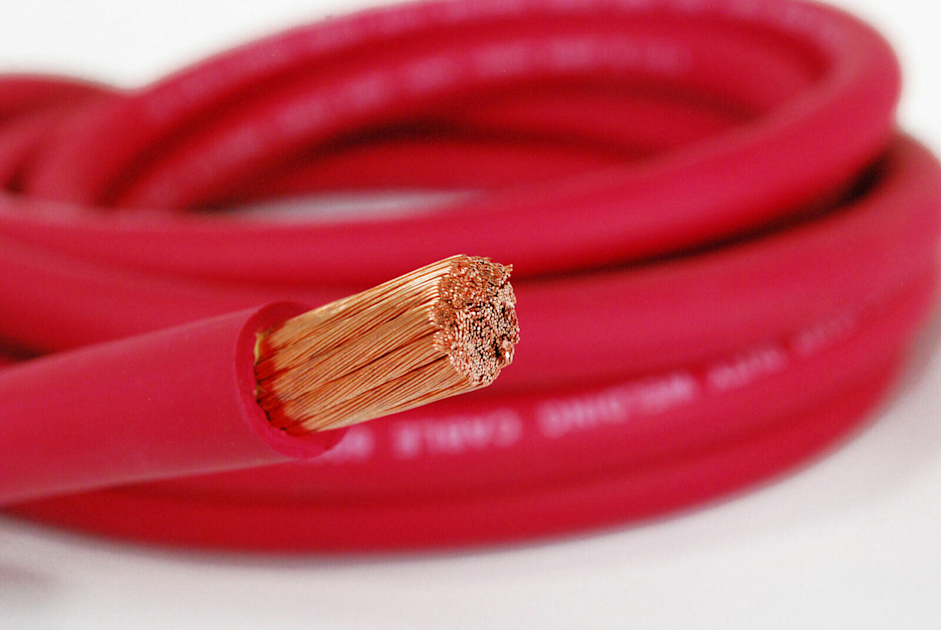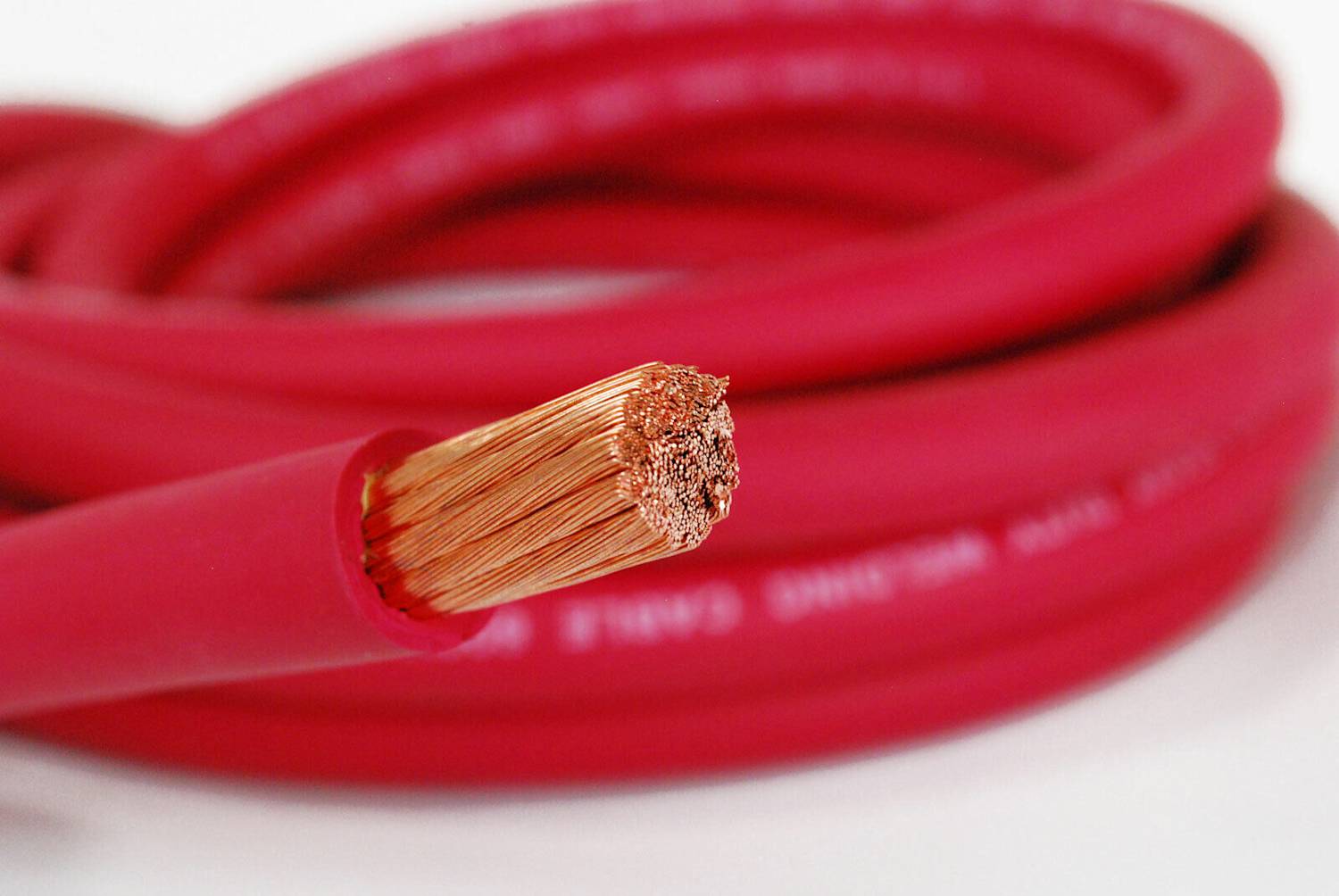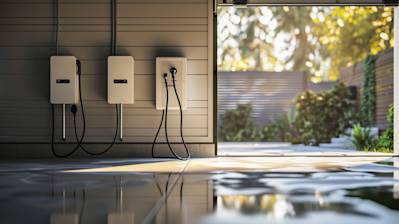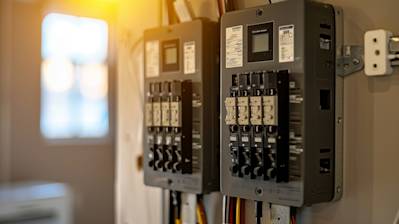For anyone dabbling in electrical setups, chances are you have come across the term '2-gauge wire.' Getting to grips with the qualifications of these mains cables, their usage, and technical terms can be daunting at first glance, but don't worry – this detailed guide has come to your rescue. Here, we'll dive deep to unfold all the nitty-gritty of 2-gauge wire, a staple in powering up numerous systems.
Taking Apart the Term '2-Gauge Wire'
Before we begin dissecting specifics, let's understand what a 2-gauge wire actually is. The term 'gauge' when defining wire sizes and types refers to the wire's diameter. It is based on the American Wire Gauge (AWG) standard, the predominantly used wire measurement system in the United States.
Here's the peculiar part: the smaller the gauge number, the thicker the wire. Therefore, a 2-gauge wire is thicker than a 4-gauge wire, for instance. Thick wires have a lower resistance, hence, they allow more current to pass through compared to thin wires.
Deciphering Technical Specifications of a 2-Gauge Wire
To understand the electrical capability and adaptability of a 2-gauge wire, it's pivotal to comprehend its specifications:
Wire Diameter: The approximate diameter of 2-gauge wire is 0.257 inches or 6.54 mm.
Maximum Amps: It can comfortably carry a current of 95 amps (for power transmission) over a substantial distance without overheating.
Voltage Drop: For a standard 2-gauge copper wire carrying 12 volts, expect a voltage drop of around 2% per 10 feet distance.
Resistance: It has a wire resistance of approximately 0.000317 ohms per foot.
These specifics paint a clear picture of the wire's capacity to carry voltage over distances while maintaining integrity and safety standards.
Common Applications of a 2-Gauge Wire
As you have now gathered details about what makes a 2-gauge wire, let's explore where these wires are commonly put to use.
Heavy-Duty Electrical Needs
The superior ampacity (ampere capacity) of a 2-gauge wire finds its main application in heavy electrical needs. This typically includes large homes, industrial units, and commercial buildings that require a high current to power up electrical devices and machinery.
Automotive Needs
A 2-gauge wire is commonly employed in automotive scenarios. It’s used for grounding heavy-duty vehicle electrical systems, feeding high-amperage alternators, and for jump-starting applications due to its ability to carry high current.
Sound Systems
In the realm of speaker systems, 2-gauge wires are used to connect amplifiers at high output levels. Its low-resistance properties make it ideal for minimizing signal losses and delivering top-quality audio.
Solar Power Systems
Solar power systems frequently use 2-gauge wire because of its high resistance to heat and ability to carry a significant amount of current over long distances with minimal voltage drop.
Frequently Asked Questions about 2 Gauge Wire
What are the applications of 2 Gauge Wire?
2 gauge wire is frequently used in applications that demand higher currents. For example, it is often employed in residential wiring for electric dryers, major appliances, and central air-conditioning units. Commercial applications include electrical vehicle charging and solar installations.
How much Current can a 2 Gauge Wire Carry?
The amount of current a 2 gauge wire can safely handle will heavily depend upon the insulation type, its temperature rating, and whether it's used in a bundled or single conductor scenario. Generally, a 2 gauge wire can safely carry anywhere from 100 to 160 amps, but always consult the National Electric Code (NEC) guidelines or a professional for precise figures.
What are the Types of Insulation used in 2 Gauge Wire?
Different types of insulation are available for 2 gauge wire to meet different environmental requirements. Some of the common types include PVC, Nylon, and Rubber. These insulations will affect the wire's safe operating temperature and other physical and electrical properties.
How to Calculate the Resistance of a 2 Gauge Wire?
Resistance depends on the wire material, length, temperature, and cross-sectional area (diameter). In most cases, using copper as an example, a 2 gauge wire has a resistance of approximately 0.000253 ohms per foot at room temperature (20 degrees Celsius).
Can I Use 2 Gauge Wire for Grounding?
Yes, 2 gauge wire can generally be used for system grounding, especially in some of the larger electrical panels. However, prevailing safety regulations might differ, so it's advised to consult the NEC guidelines or a licensed electrician.
What is the Suitable Breaker Size for 2 Gauge Wire?
2 Gauge wire pairs safely with breaker sizes ranging from 90-125 amps, for most copper wire. However, the final choice should always be based on the NEC or local codes to ensure safety and compatibility.
Is 2 Gauge Wire Suitable for Car Audio Systems?
2 gauge wire could be overkill for most car audio systems. Such thick wire is typically only needed for colossal audio installations that draw large amounts of current, like competition-level sound systems.
Can I Use 2 Gauge Wire for My Solar Panels?
Yes, 2 gauge wire can be used in solar installations, particularly when you want to connect the solar panels to the charge controller or battery bank. The larger wire size can help to cut down on wire losses over long distances.
Pros of 2 Gauge Wire
Excellent Power Handling Capability
2 gauge wires are known for their exceptional power handling capabilities. Thanks to their large diameter size, these wires can carry high voltage loads effortlessly. They can sustain power intake up to 4000 Watts, making them perfect for powerful home appliances, large-scale electrical setups, and industrial grade equipment. It's impressive how much power these wires can handle while maintaining their functionality and integrity.
Reduced Resistance
When using 2 gauge wires, you’ll notice a significant drop in electrical resistance compared to thinner wires. The thicker the wire, the less resistance it offers to the flow of electricity. This property of 2 gauge wires allows them to transmit electrical current efficiently and effectively.
Vast Applications
The 2 gauge wire offers broad scope in terms of its application. It's highly suited for areas demanding a lot of power, including electrical vehicles, sound systems, motor control centers, and inverter wiring applications. The wire is sturdy and flexible, promising longevity and resilience, even in rugged use.
Remarkable Durability
Made of robust and high-grade metal (usually copper or aluminum), 2 gauge wires boast an extended lifespan. These wires are designed to resist heat, pressure, corrosion, and other environmental conditions that could potentially damage them. They offer an impressive level of reliability and longevity, making your investment worthwhile.
Cons of 2 Gauge Wire
Costly
One of the most challenging facets about 2 gauge wire is its price. When compared to lower gauge wires, the 2 gauge variant can be quite expensive due to its superior properties, greater metal quantity, and broad application scope. An investment in 2 gauge wiring may not be feasible if you're working on a tight budget or smaller projects that don't require extensive power handling capabilities.
Not Ideal for Small Appliances
The 2 gauge wire might be overkill for smaller electrical appliances or DIY electronics projects. Smaller appliances simply don't require the current capacity of 2 gauge wire, so using it might lead to inefficiency or unnecessary costs. In these situations, a smaller diameter wire would be more suitable and cost-effective.
Weight and Flexibility
Being thicker than standard wires, 2 gauge wires are considerably heavier. This can pose challenges during installation, particularly in positions where space is at a premium or when maneuverability is essential. Lower gauge wires offer more flexibility and less weight, making them a more practical option for complex wiring tasks.
Difficult to Work With
Lastly, 2 gauge wires can be hard to work with, especially for the inexperienced. Their thickness makes it tough to strip the insulation or to twist them into connections. Moreover, specific tools appropriate for the wire size might be required. If you're not experienced in electrical work, calling a professional might be the safest course of action.
Summary
When it comes down to it, "2 gauge wire" is one beast of a wire. With its considerable size, it can handle plenty of amperage making it ideal for heavy-duty applications. It’s the kind of thing you'd use for bigger electrical jobs where other less hefty wires just wouldn't cut it.
So if you’re handling projects like a large home renovation or setting up a shop in your garage, you may find yourself reaching for some 2 gauge wire. It really makes the whole electrical process a whole lot safer the moment it's handling large currents. It's pretty clear that not all wires are created equal, and this one is certainly a step above.
Nevertheless, it's important to remember that while the 2 gauge wire has its advantages, it's not for every job. Just as you wouldn't use a sledgehammer to crack a nut, you wouldn't use this hefty wire for a small, light-duty job. But when the need arises for heavyweight electrical tasks, then this wire can truly come into its own.
About Sagan Electric
Meet Sagan Electric, your friendly neighborhood team based in sunny Sacramento, CA! We're rock-solid in both customer service and electrical expertise with over 10 years of lights-on experience. No job is too big, no project is too small - we're here to ensure your home or business is wired for success! Our dedicated and seasoned professionals are set on providing top-notch assistance, quality work, and seamless solutions to all your electrical challenges. At Sagan Electric, our personal touch is as reliable as our electrical services! So, come on over, neighbors. Let's bring some brightness together!
Tags: thick wire, electrical wiring, heavy duty wire,








